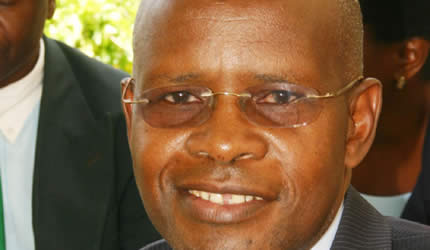Managing highly successful teams
There was also serious competition amongst them and collectively they combined very well and dominated the sport as undisputed country champions in bass fishing from 2000 to 2011.
What helped the team to succeed?
Zvakapressa (though I did not get to know his actual name) was the team captain.
They were all former members of the angling club at Falcon College in Esigodini during their high school days.
They were together for a long time hence their exceptional co-ordination and understanding. They were a marvel to watch and motivated several bass fishing enthusiasts.
The team had all the ingredients of a successful team. It appeared to have learnt a lot from time-management.com guidelines on team building as they appear to follow through most of their prescription.
Each member of the Zvakapressa-led team was very clear about their individual and collective goals.
They all knew that they had to pull together to achieve success. In addition each member of the team was quite conscious of the weaknesses of their fellow team members and how to leverage on each other’s strength.
Each member was clear about his responsibility and there was no evidence of overlapping roles which at times create conflict among team players.
Every time that the team would participate in a competition, it would share roles. One member was the navigator, the other one was the driver, the other the boat overall supervisor and another anchored the boat.
The members of the team were able to talk and solve their differences on a one-to-one basis because they have been together for a long time.
Furthermore, they met regularly on other social platforms. This effectively reduced many forms of barriers to communication among team members.
Resultantly, team members were kept informed of the teams’ events.
They knew each other on a personal basis which was instrumental in creating and fostering an atmosphere of openness and trust.
There was no evidence of people fighting for authority or dominance within the team.
The team members respected Zvakapressa. He involved the team members on various decisions that affected them as individuals and jointly as a team.
Given the social nature of their team, most of the decisions were arrived at by consensus.
Reasons for failure of once highly successful and organised team
In 2012 the curtain finally came down on this highly successful team. The once indomitable and invincible team started losing most of the competitions individually and collectively.
This came as a shock to most of their followers and the team members.
Victories began to elude them though they were taking it for granted that the number one spot still belonged to them.
Some members found it difficult to cope with the losses but in most competitions they entered they lost dismally to their competitors.
Their level of competitiveness and hunger for success had deteriorated rapidly. Though aspects which characterises highly performing teams were still there the drive which pushes the team to succeed was sadly lacking.
After suffering ego-shattering losses in various competitions, Zvakapressa conceded that the team was in a bad space and it was a mammoth task to motivate the team to perform better.
Winning no longer pumped the adrenalin of the team members to perform better.
It did not give them the excitement, it used to do. Though team members understood the challenges of winning, the competitions had ceased to be higher level ego boosting challenges.
Winning in succession can actually contribute to diminishing returns to individual/team effort.
Thus in each outing the team members were finding it difficult to justify putting in that extra effort.
Because the team members had enjoyed years of success and had won every competition in succession they felt that had done it all and they started being economic with their effort and resorted to demanding better remuneration.
Winners at times suffer from a disease recently identified as ‘’winning entitlement disease’’.
The more success one achieves, the more likely one takes that success for granted.
The start believing subconsciously that success will come their way regardless of whether they put enough effort or not.
Unfortunately, in some cases the day you achieve success is the day which presses the button for failure.
As a result members of the winning team tend to forget that their places in the team are not permanent but they have to earn them.
Mark Sanborn once remarked: ’’The greatest danger a team faces isn’t that it won’t become successful, but that it will and then cease to improve.’’
Recommendations for rejuvenating once successful teams
When teams reach their pinnacle of success, a decline is most likely to follow. The life cycle of a team can be reinvented by instituting changes in leadership and team composition.
After some time, the ideas that Zvakapressa had were useless so there was need to bring in a fresh leader with fresh ideas.
In addition the synergetic benefits of teams tend to decrease after enjoying success for a long period of time.
This entails that the leader blends old members of the team with new members.
The benefits of tinkering with the team are that new members bring in new energy and impetus and old members help with experience which is critical in stabilising the success of the team.
l The writer is a managing consultant at CLC Training International. E-mail [email protected].










Comments